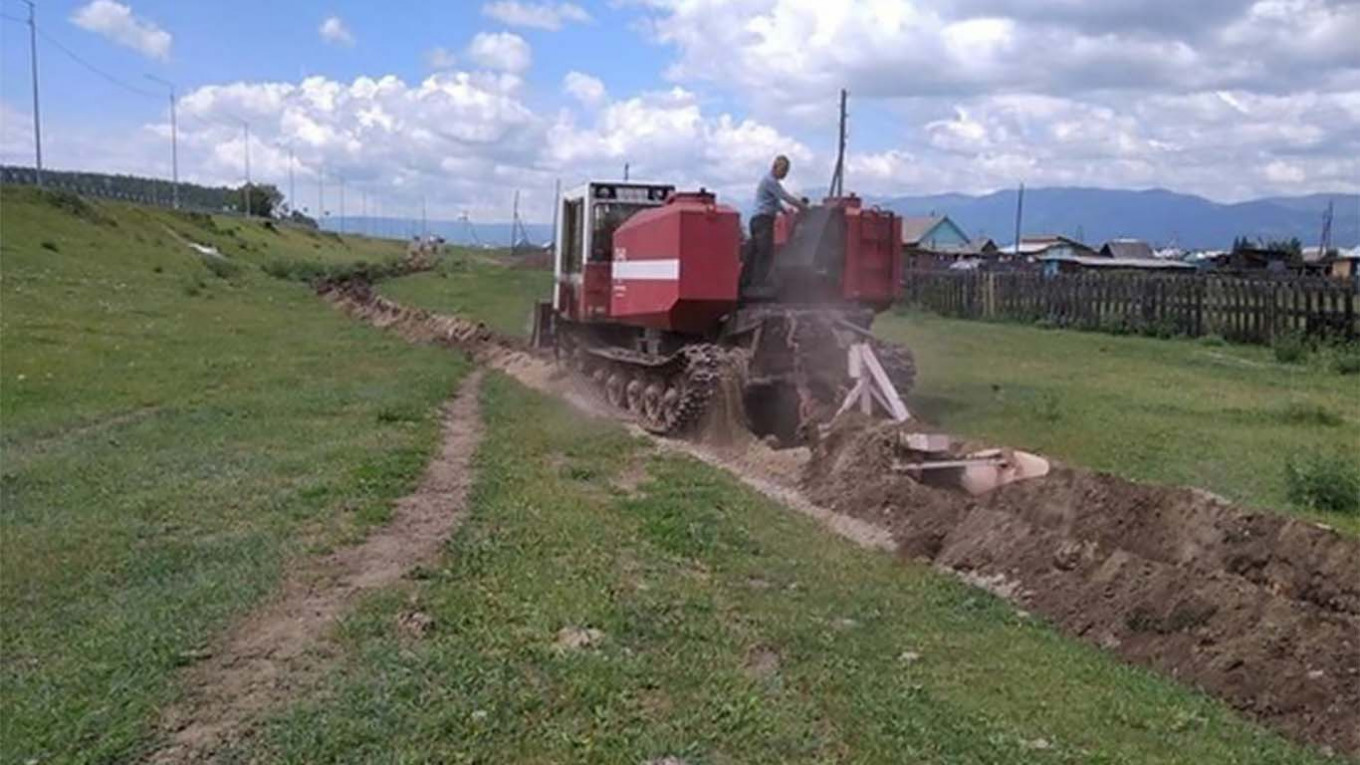Tribal Culture and SARS-CoV-2
"We were told they dug the trenches so that no one could leave and no one could come [in]."
"How could you close the village if there is no money and no work? How could people live?"
"Our elders and our grandparents started to say that we should not blame anyone. Then our parents told us not to blame anyone."
"Then we all agreed we should not blame anyone because it's good that it came in the summer. It's easier than if it came in the winter."
Bayarma Balvanova, 28, librarian, Shuluta village, Siberia
"At the beginning, it was very hard. We could hardly hold back this attack of tourists because this place is very popular."
"They would simply drive around the roadblock. People kept doing it, of course not openly, but at night when no one was around. That was happening all the time."
"Then we decided to dig a third trench, much deeper."
"The ancestors are considered to be benevolent protectors of the families and tribes. People pray when the grass is as long as the tongue of a cow."
"Of course they did not like the idea that they were locked in their village. So they objected."
"Some of them did not want to go to hospital because they did not believe that they had COVID-19, even though they had pneumonia. They did not believe in the virus at all, so there were problems with them."
Dora Khamaganova, press secretary, Tunkinsky district administration
 |
| Photo For The Washington Post By Anton Klimov |
Shuluta is an isolated Siberian village of 300 souls. And it became physically isolated from larger towns and cities in the near geography when on June 27 the local administration had two trenches dug around the village, sealing it off. In March, roadblocks had been erected to regulate access but they failed to persuade the people of the village to remain at home, which led authorities to impose a full-scale blockade, following an outbreak of COVID-19 in a geography of few medical facilities.
Shulata is the sole village in the region that was closed off in this manner. Where earlier in the global pandemic Moscow was the centre of infections, the SARS-CoV-2 virus has moved on to the nation's more remote, vulnerable regions lacking health facilities and where medical staff and equipment are both in short supply. With over 750,000 cases representing the fourth-largest national total of novel coronavirus cases globally, while recording over 6,000 daily cases, control has presented difficulties.
Close to ten percent of the village's population, representing 37 residents have contracted the disease, with 15 being flown to Ulan-Ude by helicopters to the hospitals in the much larger city near Lake Baikal. One 62-year-old in the village died from the effects of COVID. A shamanic ritual has been identified as being responsible for the outbreak, when last month a ceremony and prayers to ancestors took place; the rite to ensure prosperity and good health back-firing.
 |
| Photo For The Washington Post By Anton Klimov |
It was a Shuluta family that arranged the ceremony with relatives travelling 280 miles from Ulan-Ude to take part in the sunrise ceremony. It took two weeks before the first confirmed cases of coronavirus infections appeared. Authorities faced defiance, rule breaking, neighbours turning against neighbours and questions finally arose relating to measures to stop the spread of he infection. The village residents were furious, many blaming the family that had held the shamanic ritual drawing outsiders to the village.
Doctors from Ulan-Ude and community elders stepped in to calm down the community chaos. The hamlet is situated on a bank of the Irkut River, at the foot of the Sayan Mountains, sacred to the two main tribes living there. Its natural beauty is famed as the gateway to the Tunkinsky National Park with its rugged peaks, mineral springs and waterfalls. Tourists find it the perfect getaway for off-road SUV drivers, campers, kayakers, fishing enthusiasts and whitewater rafters.
Ivan Alkheyev, head of he district, and an epidemiologist by profession, foresaw the risk of a major outbreak in the valley, causing him to set up roadblocks to limit access to the hamlet and to establish a database of those from the region permitted to travel through the village into the mountains beyond.
The two precautionary, exclusion trenches failed to keep people out of the town, when people used off-road vehicles to drive through them.
 |
| Photo For The Washington Post By Anton Klimov |
After doctors from Ulan-Ude arrived, bringing a team to disinfect the village, the total lockdown was ordered. Most of the village residents are unemployed. They can only earn a money by travelling to the town of Slyudyanka close to 40 miles away to sell milk. And it's where town residents also shop for food and goods more inexpensively than what is charged in Shuluta's one shop.
Everyone in the village was tested by the doctors and everyone was X-rayed. People were confined to their homes, some identified to receive hospital treatment, but not everyone followed orders of the authorities. Arguments erupted between the villagers, most blaming the family that had held the shamanic ritual for bringing outsiders to the town who spread the disease. Elders of he village finally were moved to intervene and calm the situation. And the town residents may never view each other the same way again.
 |
| Two deep trenches form "an almost complete ring" around the village. Dora Khamaganova / ulan.mk.ru |
Labels: Novel Coronavirus, Russia

<< Home